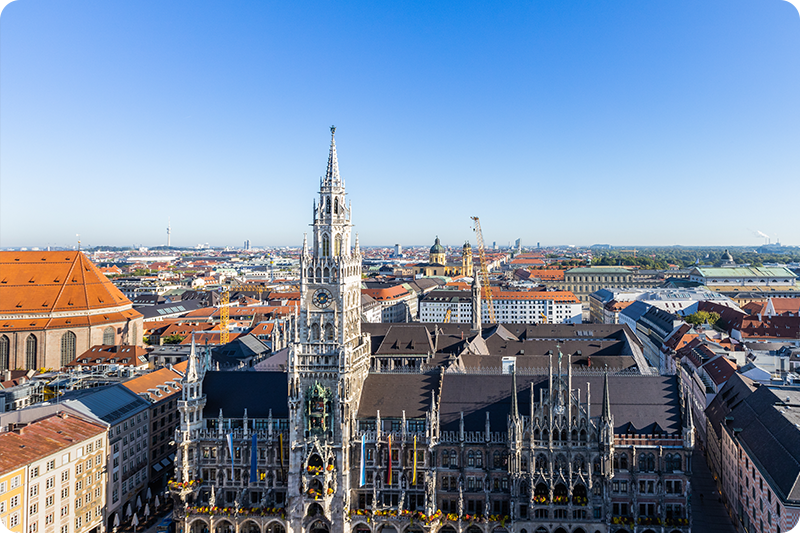
Munich, Germany

Munich, the capital of the Free State of Bavaria, is located on the banks of the Isar River at the northern foot of the Alps in southern Germany and is one of the countrys major economic, cultural, scientific and transportation centers. With a total area of 310 square kilometers, Munich is the largest city in southern Germany. Munich is one of Germanys largest economic centers and one of the worlds most important centers of technology and innovation. Munich has a very diverse industrial structure, including automotive, machinery, electronics, biotechnology, finance and many other fields. The city has a concentration of high-tech industries, with automobile manufacturing, machinery, electrical and chemical industries all occupying an important position in Germany, and is home to dozens of multinational headquarters such as BMW and Siemens and more than 300,000 small and medium-sized enterprises.
Munich is one of the largest economic centers in Germany and one of the most important centers of scientific and technological innovation in the world. Munich has a very diverse industrial structure, including a wide range of fields such as automotive, machinery, electronics, biotechnology, and finance. The city has a concentration of high-tech industries, with automobile manufacturing, machinery, electrical and chemical industries all occupying an important position in Germany, and is home to dozens of multinational headquarters such as BMW and Siemens and more than 300,000 small and medium-sized enterprises.
With 200 years of industrialization, Germany has accumulated a culture of engineers that is integrated into every household, providing a unique soil for the industrialization of innovation in German scientific research. The German innovation system and science and technology policy provide a series of step-by-step incubation for academic industrialization projects, and their soft landing support can be described as the best; on the other hand, academic research and peer enterprises closely develop products and train students, and the recruitment of professors requires a strong industrial background, and the innovation culture of truthfulness and pragmatism combined with the advanced manufacturing base and research institutions spare no effort to promote industrialization. The combination of a pragmatic and innovative culture with an advanced manufacturing base and the relentless promotion of industrialization by research institutions has resulted in a large number of high-tech enterprises in Germany that continue to promote technological progress.
